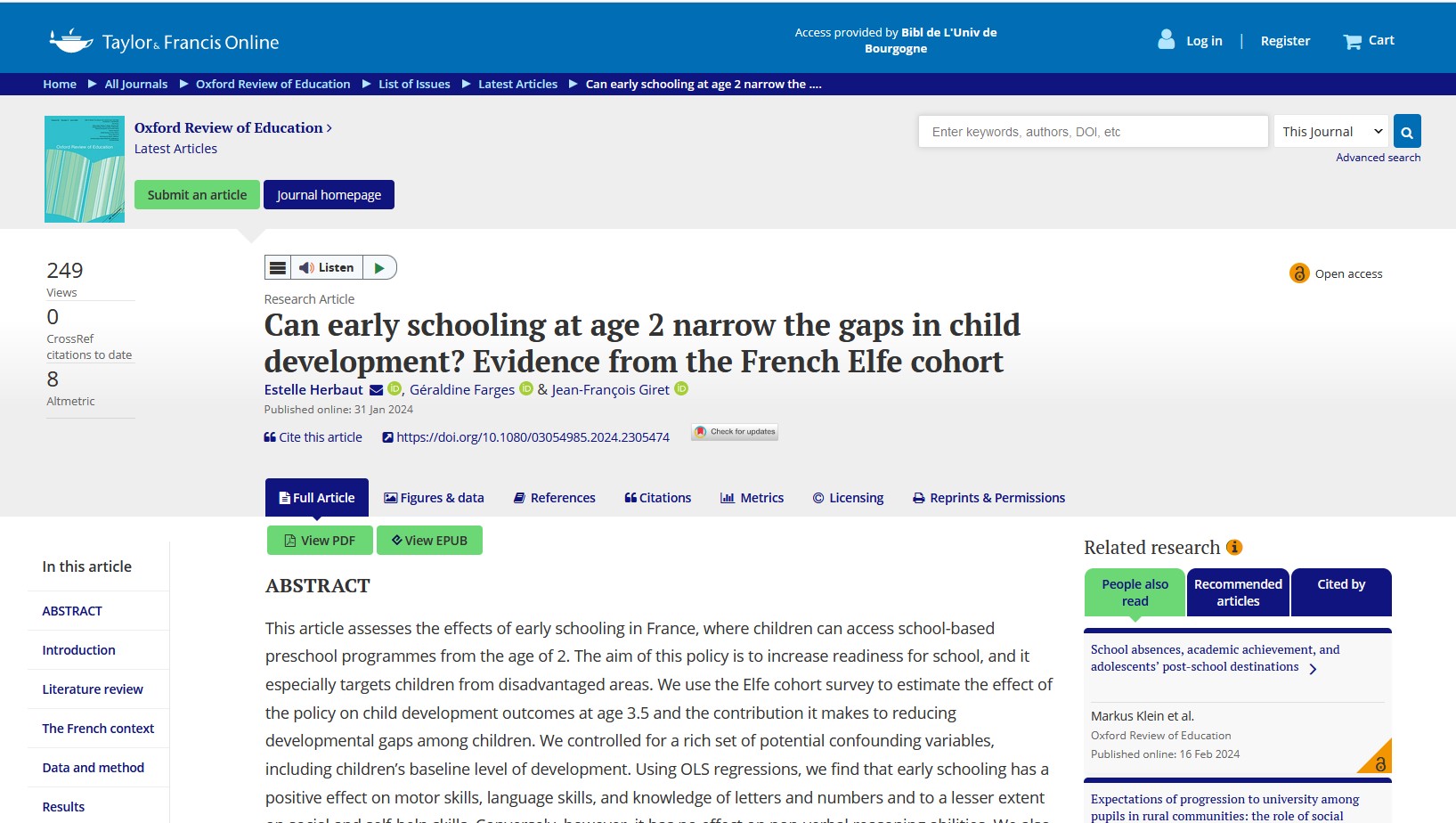24008. Herbaut, E., Farges, G., & Giret, J.-F. (2024). Can early schooling at age 2 narrow the gaps in child development? Evidence from the French Elfe cohort. Oxford Review of Education, 0(0), 1‑19. https://doi.org/10.1080/03054985.2024.2305474
This article assesses the effects of early schooling in France, where children can access school-based preschool programmes from the age of 2. The aim of this policy is to increase readiness for school, and it especially targets children from disadvantaged areas. We use the Elfe cohort survey to estimate the effect of the policy on child development outcomes at age 3.5 and the contribution it makes to reducing developmental gaps among children. We controlled for a rich set of potential confounding variables, including children’s baseline level of development. Using OLS regressions, we find that early schooling has a positive effect on motor skills, language skills, and knowledge of letters and numbers and to a lesser extent on social and self-help skills. Conversely, however, it has no effect on non-verbal reasoning abilities. We also find that disadvantaged children and those with a low level of skills at age 2 benefit more from early schooling. We also use logistic regressions to show that socially disadvantaged children and high-skilled children are more likely to access early schooling. We conclude that to make a more effective contribution to reducing gaps in child development, early schooling should be made more accessible to low-skilled children.
Cet article est disponible en texte intégral sur le site de l’éditeur https://doi.org/10.1080/03054985.2024.2305474 et sur hal-shs : https://hal.science/hal-04433965/document
